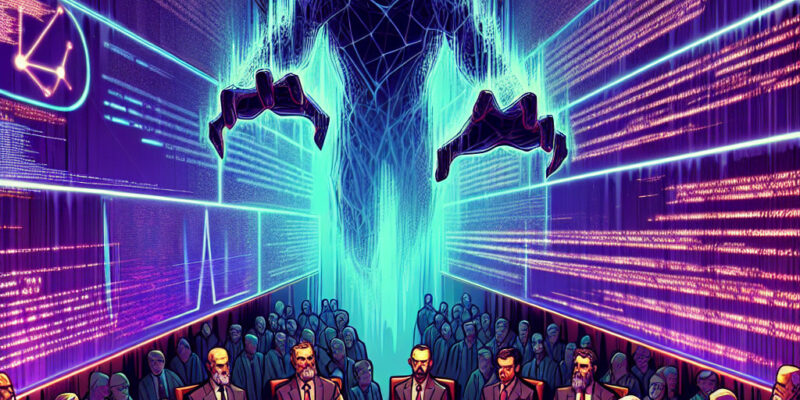Senators Demand Probe: Is DeepSeeks AI a National Security Threat?

In a political climate charged with heightened scrutiny over technology and its far-reaching impacts, seven Republican senators have raised their voices in concern over a potential menace lurking within the digital domain. Their focus centers on DeepSeek’s R1, a sophisticated open-source artificial intelligence model, and whether it presents a broader security challenge to national interests. This call to action is more than a mere cautionary tale; it’s a signal of the complex dance between innovation and regulation, where the line between opportunity and risk is often blurred.
This inquiry isn’t simply about one AI model; it symbolizes a more profound introspection into the role open-source software plays in our global landscape. Open-source models, known for their transparency and collaboration, are lauded for democratizing technology. They provide developers worldwide with the tools to innovate freely. Yet with this accessibility comes a potential downside: the possibility for misuse by malicious actors who could exploit these tools to the detriment of public safety and national security.
DeepSeek’s R1 stands at the center of this dialogue. As an intricately designed AI capable of processing vast amounts of data with remarkable accuracy, its capabilities, if wielded irresponsibly, could be harnessed in ways that threaten infrastructure, privacy, or even governmental functions. While this scenario may seem fictional to some, the senators’ concerns highlight a realistic apprehension about technological vulnerabilities.
The request to the Commerce Department signifies a careful balancing act. While innovation should not be stifled, vigilance is necessary to ensure that progress does not come at the cost of safety. Technology, after all, knows no borders. In today’s interconnected world, an issue in one nation’s technological framework could ripple across the globe.
This isn’t the first time technology has been scrutinized for its potential threats. Historical parallels can be drawn to the early days of the internet, where fears about information security and privacy were rampant. Over time, regulatory measures were developed that allowed the internet to grow into an indispensable resource while mitigating risks.
The crux of the current issue lies in understanding the rapid evolution of AI. Unlike traditional software, artificial intelligence has the potential to learn, adapt, and execute complex tasks autonomously. The senators’ inquiry urges policymakers to consider not just the immediate implications but also the long-term trajectory of AI development. Could these models evolve to a point where they operate independently in ways even their creators cannot predict or control?
From another perspective, open-source AI models like DeepSeek’s R1 are pivotal in fostering innovation. They empower smaller companies and independent developers to compete on a level playing field with tech giants. However, the responsibility of safeguarding these innovations from misuse needs to be shared across the tech ecosystem—developers, corporations, and governments alike must craft frameworks that ensure security without stifling creative freedom.
Thus, as the Commerce Department evaluates the request for an investigation, the tech community and policymakers are prompted to think more critically about how we can evolve alongside our creations. The dialogue may not result in immediate action, but it does initiate vital discourse about the future of technology and its regulation. Will our approach to AI balance protection with progress, or will it tilt too far in a direction that undermines one for the sake of the other?
As we ponder these questions, it’s clear that this is not merely a technological issue but a societal one, challenging us to reflect on what kind of future we aim to create and the role AI will play in it. It’s a conversation worth having, for the decisions made today will shape tomorrow’s technological landscape.













